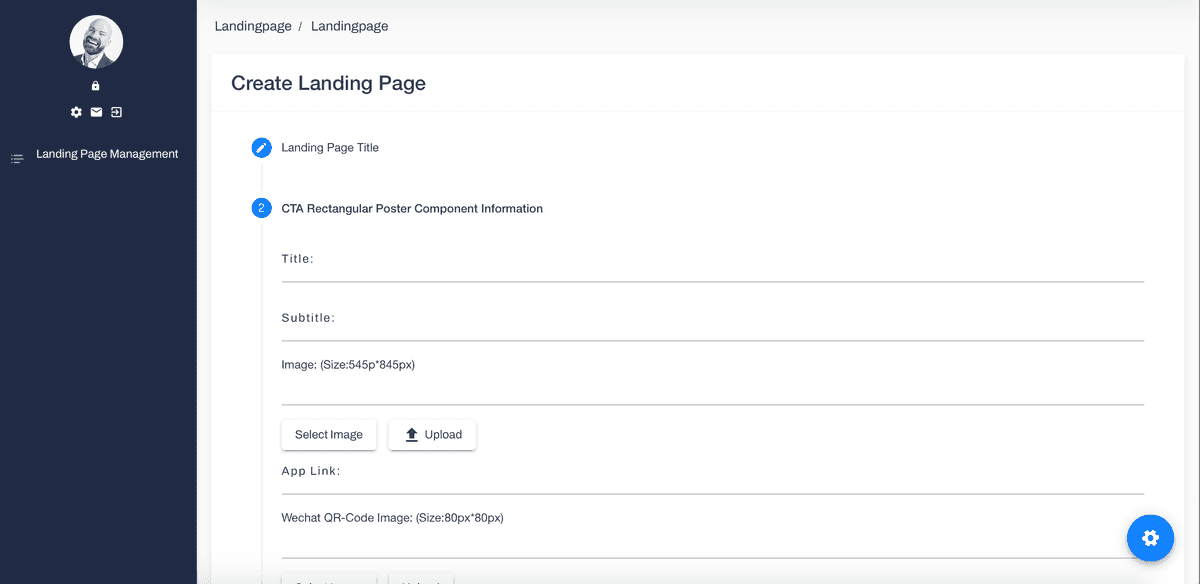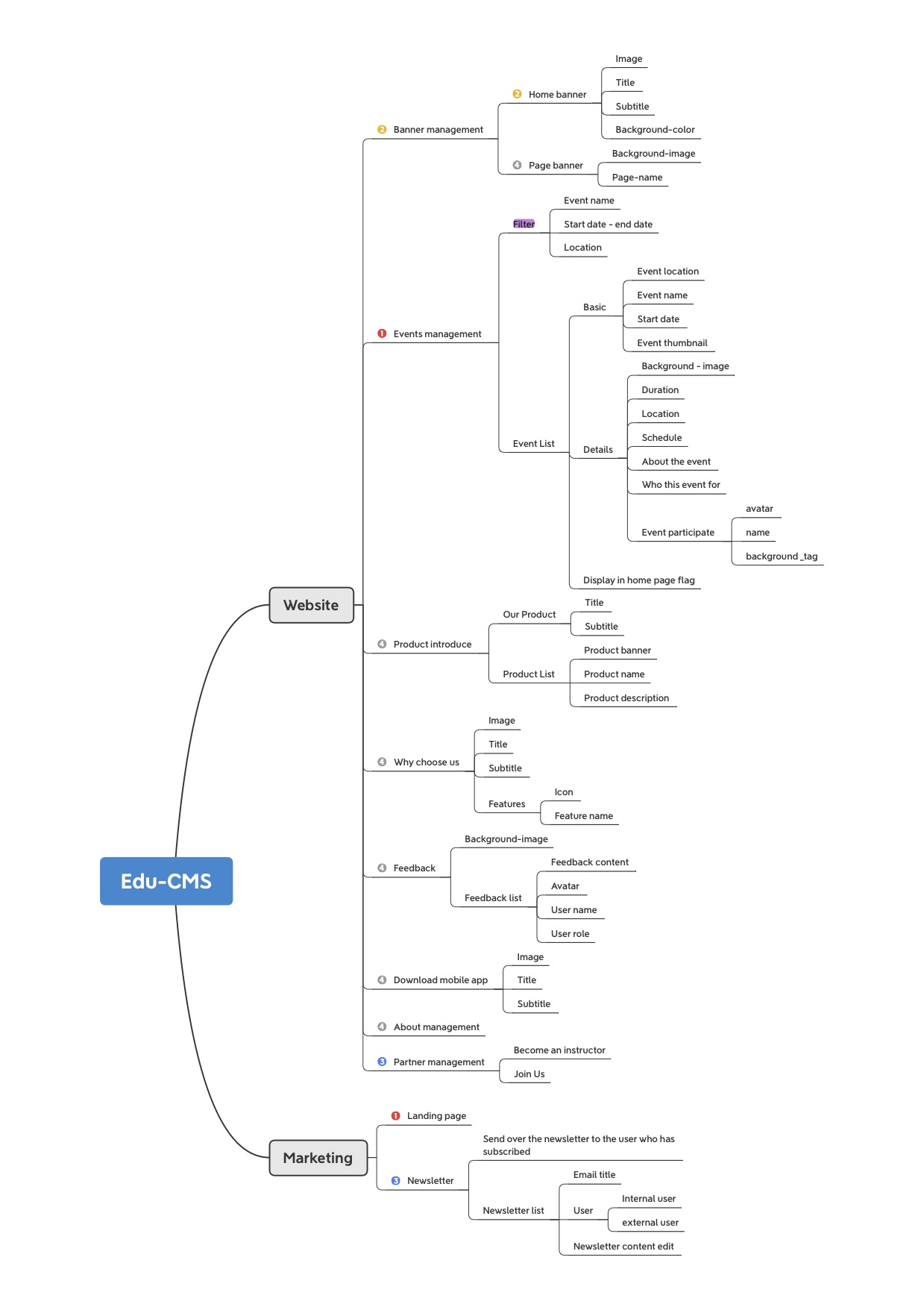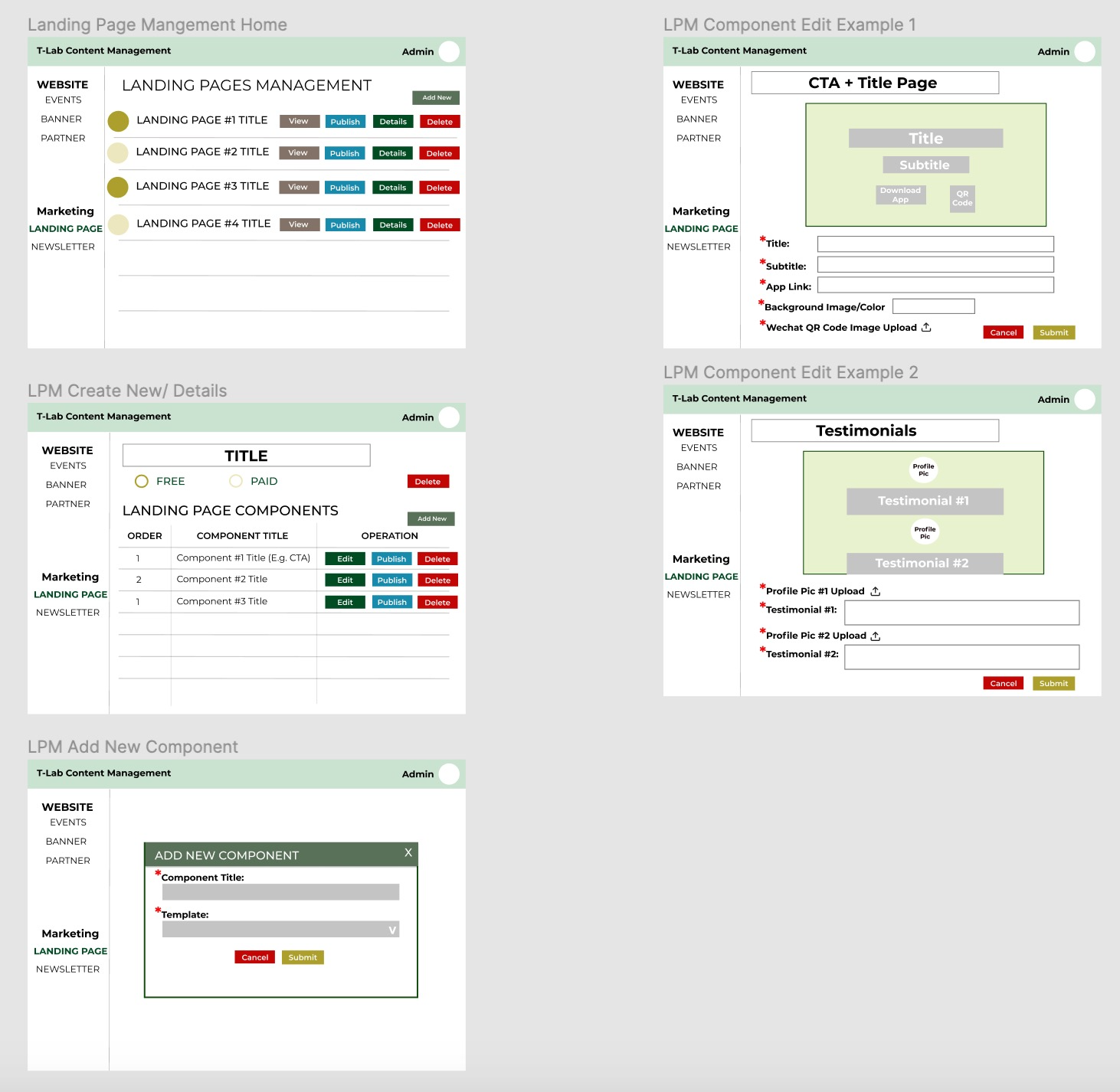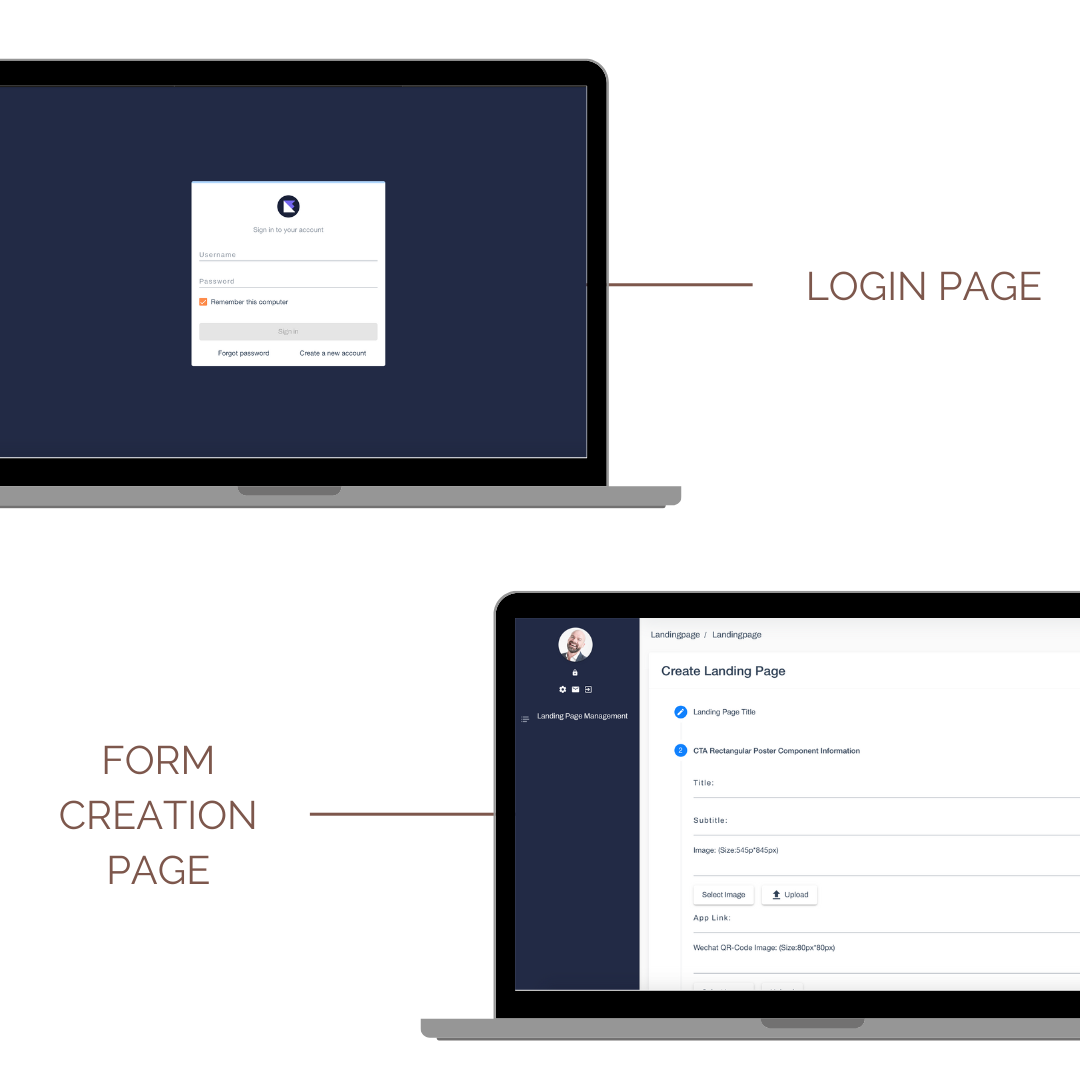
T-Lab Content Management System
Janurary - May 2021
Full Stack Software Engineer Intern
T-Lab Education, an EdTech startup based in Shanghai, China, focused on building an educational technology platform for pre-K-12 students. During my six-month, full-stack software engineering internship in 2021, I collaborated with the marketing and operations team to optimize the promotional process for the web app.
Problem Space
The marketing and operations team at this pre-launch startup was preoccupied with developing and implementing promotional strategies for their web app. As the full-stack engineer dedicated their efforts to the web app's development, the marketing team focused on building product awareness. During my internship at this startup, I was granted significant creative freedom by my manager and mentor. I collaborated with the marketing team to optimize the promotional process for the web app.
Objective
The goal of this project was to develop a content management system that streamlines the marketing team's process of creating landing pages for new product promotions and advertisements.
Design Process
There were three phases to this project.
User Research
The initial phase of the project involved a deep dive into understanding the core issues and requirements of the end-users. This was achieved through extensive discussions and interviews with key stakeholders from both the marketing and product management teams. These insightful interactions enabled the creation of a comprehensive flowchart that mapped out the essential needs for the content management system.

Based on this analysis, three primary areas were identified for initial focus:
Banner Management
Event Management
Product Introduction
These areas were deemed critical for the efficient and effective operation of the content management system.
Solution Prototyping
The subsequent stage involved translating these requirements into tangible designs. Using Figma, a collaborative design tool, mockups were created to visualize the proposed solutions. These mockups were then subjected to multiple rounds of feedback and iteration, incorporating valuable insights from users to refine and optimize the designs.

Development
This iterative process culminated in the production of final designs that were subsequently developed using AngularJS, a robust JavaScript framework. The end result was a content management system that was tailored to meet the specific needs of the marketing and product management teams, streamlining their workflows and enhancing their productivity.

Results
The implementation of a new content management system, equipped with admin verification, significantly streamlined the operations team's workflow. This enhanced system granted the team the autonomy to generate diverse landing pages, each with unique content and layouts, tailored to meet the specific requirements of their various marketing initiatives.
The admin verification feature ensured that all content adhered to company standards and guidelines before being published, while the flexibility of the content management system empowered the operations team to respond rapidly and effectively to evolving marketing demands. This solution not only improved the efficiency of content creation but also enhanced the overall quality and consistency of the company's marketing materials.
Takeaways
I experienced significant growth as both a programmer and a team player throughout this project. Collaboration with software engineers, product managers, and the operations team was essential, from design to implementation. Clear documentation of my work was crucial to ensure a smooth transition for other engineers after my departure.